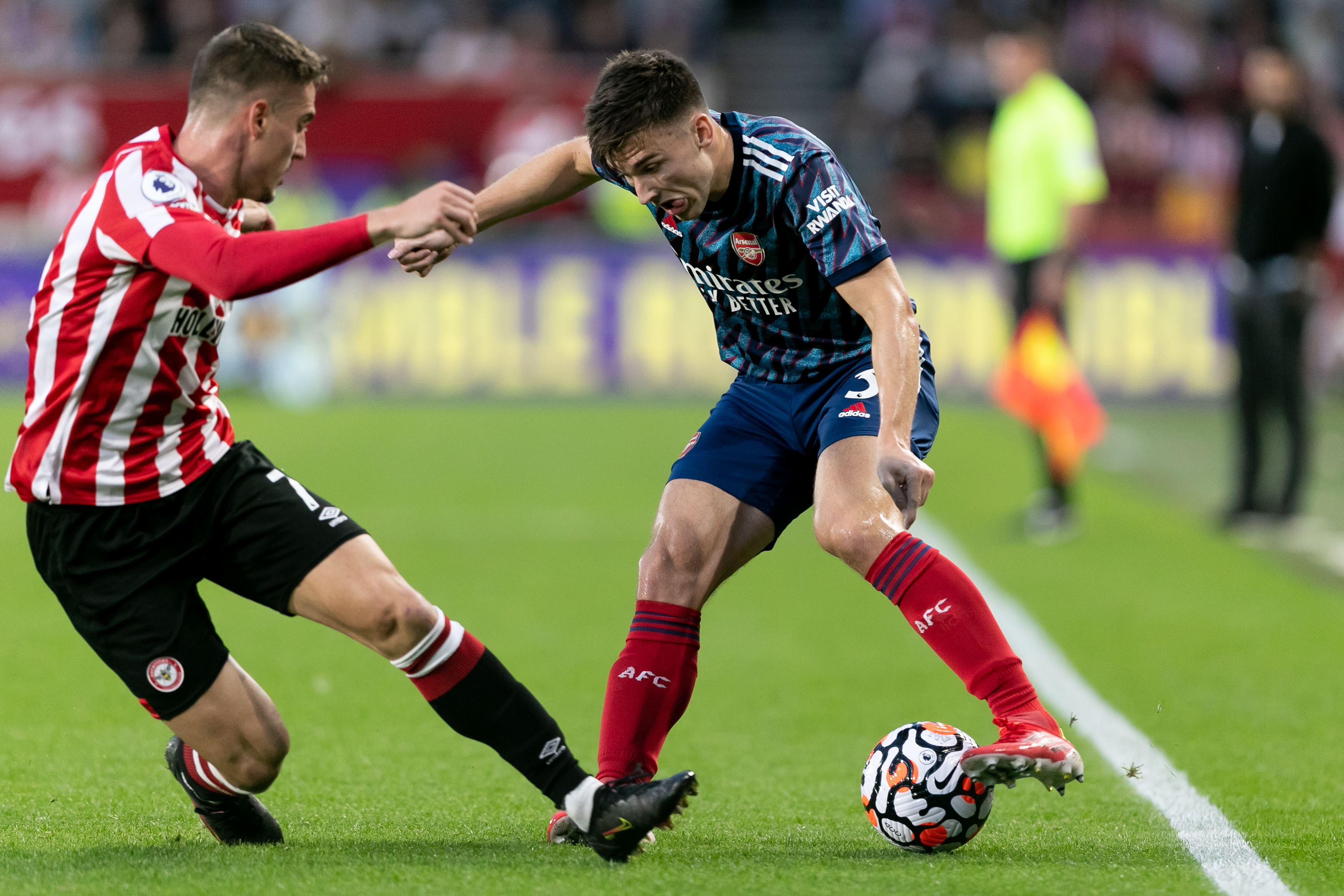One's Kompany: just where have all the player-managers gone?
With Vincent Kompany being appointed Anderlecht player-coach, FFT delves into the archives to explore the history of a decreasingly common phenomenon
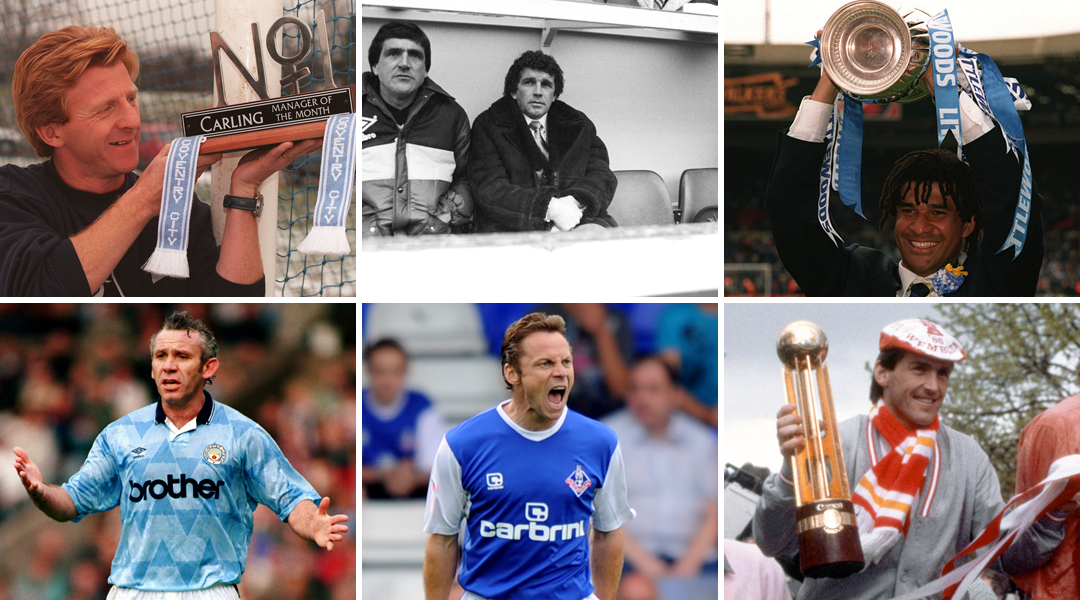
This feature was originally published in the April 2011 edition of FourFourTwo magazine.
In terms of Oldham Athletic’s 2010/11 season, it was a fairly insignificant moment. With four minutes remaining of their match against Bristol Rovers in a sparsely filled Boundary Park, then-Latics boss Paul Dickov replaced striker Dean Kelly.
“I came on and immediately got booked,” laughs Dickov. “Before the match I was busy telling my players how they needed to keep their discipline and their composure. Then I go and get my name taken.”
That wasn’t the end of Dickov’s miserable cameo. “I also misplaced a couple of passes. I saw a couple of the lads just about to give me a bollocking before they remembered I was the boss and they bit their tongue. That’s when I knew I had to hang up my boots." (Dickov would in fact go on to make one further substitute appearance for Oldham a few weeks after this.)
“Being a manager these days is so demanding that it’s almost impossible to be playing as well. These days the manager has a million-and-one jobs to do. You have to be a financial advisor, schoolteacher, psychologist and a statistician. You have to plan training sessions, assess injuries, analyse match data, scout opponents and potential signings, deal with agents and players. It’s a 24/7 job and it’s no wonder they aren’t any player-managers any more.”
Tough transition
It wasn’t always thus. From Huddersfield and Arsenal legend Herbert Chapman at Northampton Town in 1907, to Norman Hunter at Barnsley in the early-80s, player-managers have been regular fixtures in English football – with mixed results. Many players coming to the end of their careers are happy to take on the extra responsibility. In 1973, Johnny Giles even combined playing and managing for club and country as he took the helm at West Brom and the Republic of Ireland.
Get FourFourTwo Newsletter
The best features, fun and footballing quizzes, straight to your inbox every week.
“In the past it was seen as a way for clubs to get two for the price of one,” says Gordon Taylor, (soon-to-be former) chief executive of the Professional Football Association. “A lot of clubs were happy to have an experienced professional who was coming to the end of their career to take over the management role. You didn’t need coaching qualifications back then so players could move into management with minimum fuss.”
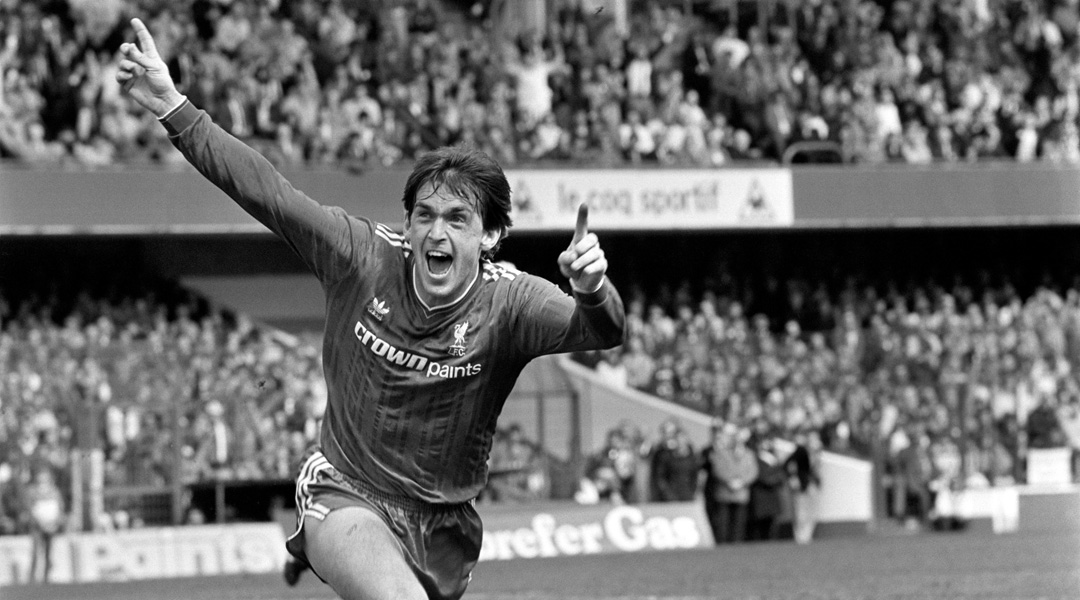
That said, the bigger clubs tended to steer clear of the dual role, although that changed in 1985 when Liverpool appointed Kenny Dalglish. In Dalglish’s first year in charge he won the League and FA Cup double, scoring the winning goal in the title-clinching victory at Stamford Bridge. That’s not to say that the Scotland international found it easy to combine both jobs, and he relied heavily on a strong backroom staff. Bob Paisley was brought back to be Dalglish’s advisor while Anfield stalwarts Ronnie Moran, Roy Evans and Tom Saunders were also on hand for coaching duties and guidance.
Not that Dalglish was frightened to take decisions and tackle problems head on. The Scot reveals the difficulties he had in moving from player to player-manager. “Suddenly I had to distance myself from the dressing room world of banter and wind-ups, something that I loved,” recalls Dalglish. “Immediately we had to address the issue of what the players should call me. It was agreed my title would be ‘boss’.
Dalglish also reveals that Liverpool defender Phil Neal was angry that he hadn’t been chosen as manager and made a point of calling the new manager ‘Kenny’. “I pulled him up about it,” says Dalglish. “‘Call me boss’ I told him. That was that, and to Phil’s credit he called me ‘boss’ afterwards. He didn’t really have a choice. I was the boss.” It wasn’t long before Neal was shipped out of Anfield to become player-manager at Bolton.
When Dalglish took the Anfield job he knew it would accelerate the end of his playing career. He had one more full season doing both roles, during which he scored six goals in 18 league appearances, but for only the third time in 15 years Liverpool ended up without a trophy.
“I think Kenny made the player-manager role work because he was such a fantastic player and he was revered and respected by everyone in the squad,” says former Liverpool defender Jim Beglin. “He had an aura about him and his greatness on the pitch was easily transferred off it. I think that to be a successful player-manager you had to be a great player and Kenny was definitely one of those. Maybe people looked at his success and thought they could also make the player-manager role work.”
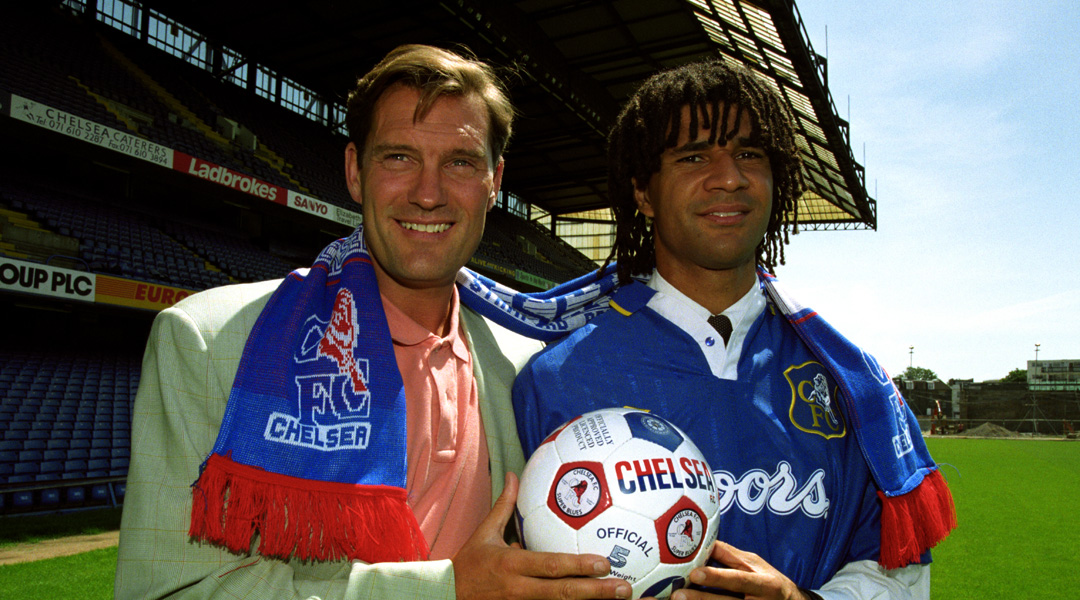
Conflicts of interest
After Dalglish’s episode in the dual role there was certainly an increase in the number of player-manager appointments at clubs, big and small. Trevor Francis took over as player-boss at Sheffield Wednesday in 1991, while Peter Reid spent three years at Manchester City juggling both roles and secured a fifth-place finish in his first two seasons. Then, in the space of six years, Chelsea had three consecutive player-managers, with Glenn Hoddle, Ruud Gullit and Gianluca Vialli all tasting success of sorts.
Despite the increasing popularity of the role, it wasn’t all plain sailing. “It was really enjoyable but incredibly hard to be a manager and a player,” says Reid. “I honestly don’t think anyone can do that in this day and age, because even when I did it at City it was bloody hard. The most difficult thing for me was that as a player you needed to get a good amount of rest. When you were manager as well you would never get that time to rest because something always came up. It was knackering.”
Reid also sometimes found it difficult to pick himself in the team. “I was never one for saying I’ve got to be playing all the time and in the end I brought in Steve McMahon to do my job because I thought that was best for the club.”
Not all player-managers were as selfless. In 1997, Mark Hateley took over as player-manager at Hull and managed to negotiate a contract that earned him £1,000 if he played. “It was hilarious,” a Hull player of the time told FFT. “In the last few minutes of every match he would put himself on. He even put himself on once when he had a bad calf injury. He hobbled onto the pitch, turned to the chairman in the stands and waved at him to thank him for another grand. It just shows the conflicts of interest that a player-manager can bring.”
Under pressure
But in the late-90s, football was beginning to change. Since the advent of the Premier League in 1992, the role of manager had undergone a massive transformation at all levels of the professional game. “Football has become more of a results-driven industry,” explains Richard Bevan, chief executive of the League Managers Association.
“Managers have a limited time to deliver results, while the expectations at boardroom level and with the fans have never been higher. Clubs are now global brands and the media commitments and scrutiny increases with each year. Added to that, the financial implications of relegation are more and more severe, so for an individual to effectively combine the role of playing with managing would be incredibly demanding both physically and mentally.”
The average tenure of a Football League manager is now at an all-time low of a staggering 1.39 years. The average manager in League One lasts barely over a year (1.17). “Football has never been more brutal or volatile, while the training regimes of professional players has never been more demanding,” adds Bevan. “It’s no surprise there are so few player-managers around these days.”
Dickov agrees. “I asked my players to train as they would play and to play as they would train,” he says. “If I had to miss a training session because I had a meeting or another managerial commitment then I couldn’t practice what I preached and that would mean I wasn't being fair to the players. It’s such a tough job and I felt like I was back at Arsenal as a 16-year-old learning my trade all over again. There’s so much to take in that I’d only play as a last resort.”
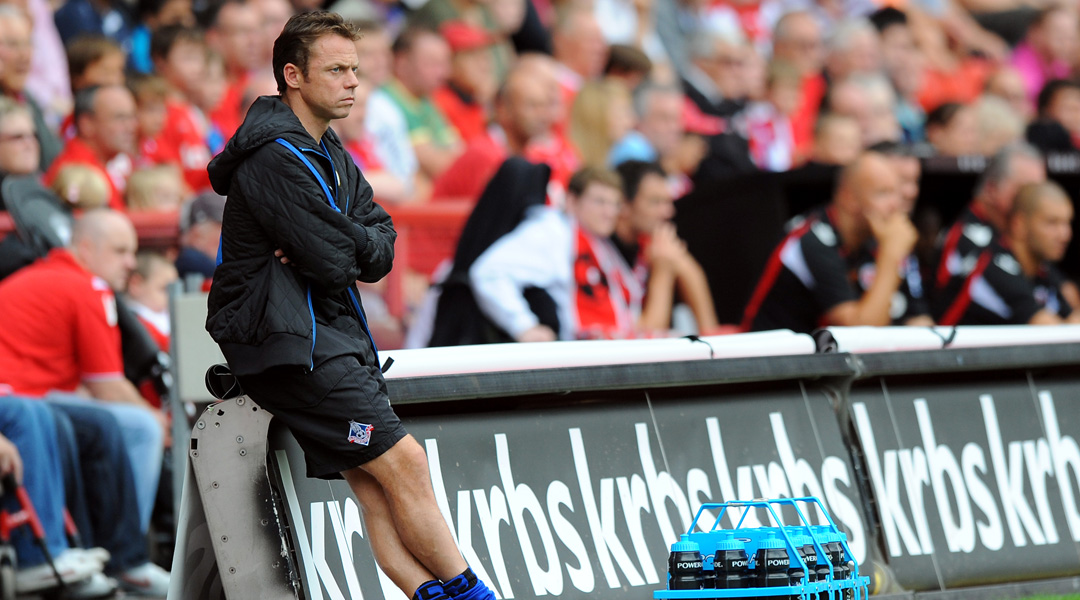
Player-managers have rarely been seen on the continent, where the role of manager requires intensive studying for compulsory coaching qualifications. In Italy, would-be managers have to spend the best part of a year at the Coverciano coaching centre. Playing careers aren’t compatible for such a commitment. In 2013, UEFA data revealed that Italy has 40,023 coaches who have the UEFA A, B and Pro Licence, Spain has 24,814, while England has only 10,943. Times, though, are changing. “We are getting more and more like the continent where coaching qualifications are deemed more valuable and necessary to become a coach,” says Gordon Taylor. “Players just don’t have the time to spare to do the studying that is required until after their playing career is over.”
It takes more than 500 hours of theory and practical study to complete the UEFA A, B and Pro Licence badges and Taylor’s advice to players is simple. “We strongly advise that players keep on playing for as long as they possibly can. A player’s contract is a lot more watertight than a manager’s contract. It’s much more difficult to sack a player, so I would recommend playing until they are ready to stop altogether and only then should they move into management.”
One player who ignored that advice was Lee Bradbury. The forward was only 35 when offered the Bournemouth job in January 2011, and hung up his playing boots immediately. “I could have easily played for at least two more seasons,” says Bradbury, who was handed a two-and-a-half year contract to manage the Cherries – but lasted just over a year in the role.
“It was a tough decision because I was still enjoying playing. Everybody says you must play for as long as you can but I felt I had to give management 100 per cent commitment. I couldn’t do that if I was also playing. The preparation for matches is so much more intense than when I was playing years ago. In this day and age juggling both jobs is next to impossible and I think it’s a role that will eventually die out.”
With Vincent Kompany's appointment at Anderlecht, it's not quite been laid to rest just yet.
NOW READ...
6 things we loved – and miss – about the Cup Winners’ Cup
NEXT: Five player-managers who bossed it... and five who should have stuck to just playing
Five player-managers who bossed it...
Adolfo Pedernera
- CD Los Millonarios (1951-53)
The Argentina international was one of South America’s greatest players after a successful spell with River Plate. In 1951 he moved to Bogata-based CD Los Millonarios, who he led to three consecutive league titles and a Colombian cup as player-manager.
Graeme Souness
- Rangers (1986-91)
Rangers’ first ever player-manager, Souness re-established the Ibrox side as Scotland’s most successful club. A raft of signings from England – the likes of Chris Woods, Terry Butcher, Trevor Steven, Gary Stevens and Ray Wilkins – helped Souey to three league titles and three league cups.
Gordon Strachan
- Coventry (1996-97)
When Ron Atkinson became Coventry’s director of football, Strachan was promoted to the manager’s seat while his playing career was coming to an end. The former Scottish international became the Premier League’s oldest outfield players at 40 and masterminded Coventry’s final-day Premier League survival.
Glenn Hoddle - Swindon and Chelsea (1991-95)
Having inherited a club still reeling from the financial scandal that stripped Swindon of their promotion to the top flight, Hoddle led the Robins to the Premier League three years later. He moved to Chelsea and in his first season led them to the FA Cup and qualification for Europe.
Dennis Wise
- Millwall (2003-05)
Led Millwall to the FA Cup final in 2004, becoming the first side outside the top flight to reach the final since 1992. They also qualified for Europe for the first time in their history before Wise fell out with the club’s chairman.
...and five who should've stuck to just playing
Bobby Charlton - Preston North End (1973-75)
Along with fellow England and Manchester United team-mate Nobby Stiles as player-coach Charlton oversaw Preston’s relegation into the Third Division before a disagreement with the board saw him leave two years later
Romario -Vasco de Gama (2007–08)
The Brazilian goal machine took over the reins at the age of 41. Unsurprisingly it was a colourful spell that saw him score three goals in his first six appearances before going on to fall out with the club chairman and failing a drug test.
Mario Kempes - Pelita Jaya and KS Lushnja (1996)
In his early forties, Kempes chanced his arm as player-manager of Albanian side KS Lushnja. His time in the Balkans was short-lived before he endured a similar fate in Indonesia with Pelita Jaya.
Steve Claridge - Portsmouth (2000–01)
Claridge’s first move into management while still playing lasted just 25 games before he was demoted. He later had a similarly brief spell as player-manager at Weymouth before concentrating on his media career.
Terry Butcher - Coventry (1990–92)
At 32 he was the youngest manager in the Football League but struggled to balance the job while still playing. After less than two years in charge he was sacked with Coventry struggling near the bottom of the league.
This feature was originally published in the April 2011 edition of FourFourTwo magazine.
RECOMMENDED
9 men who took on dual roles at football clubs... with varying rates of success
